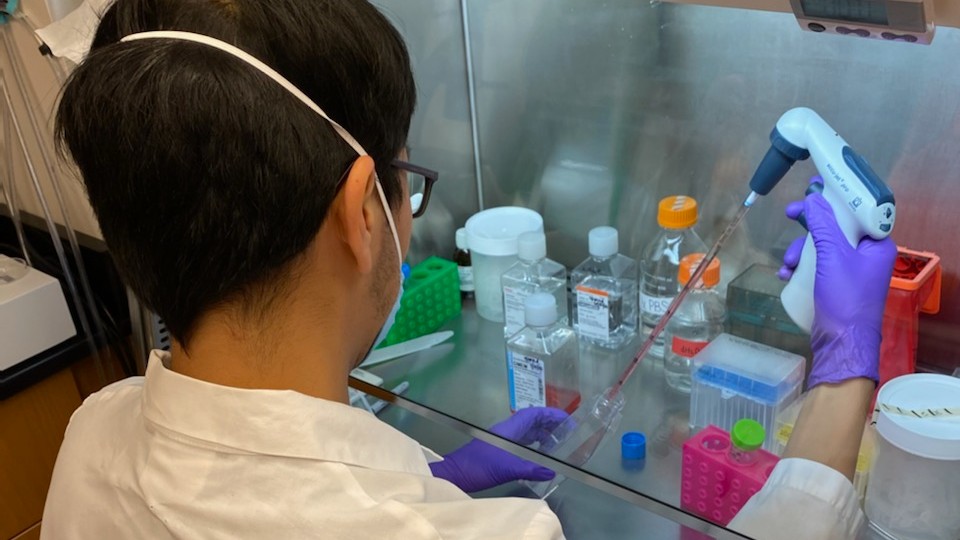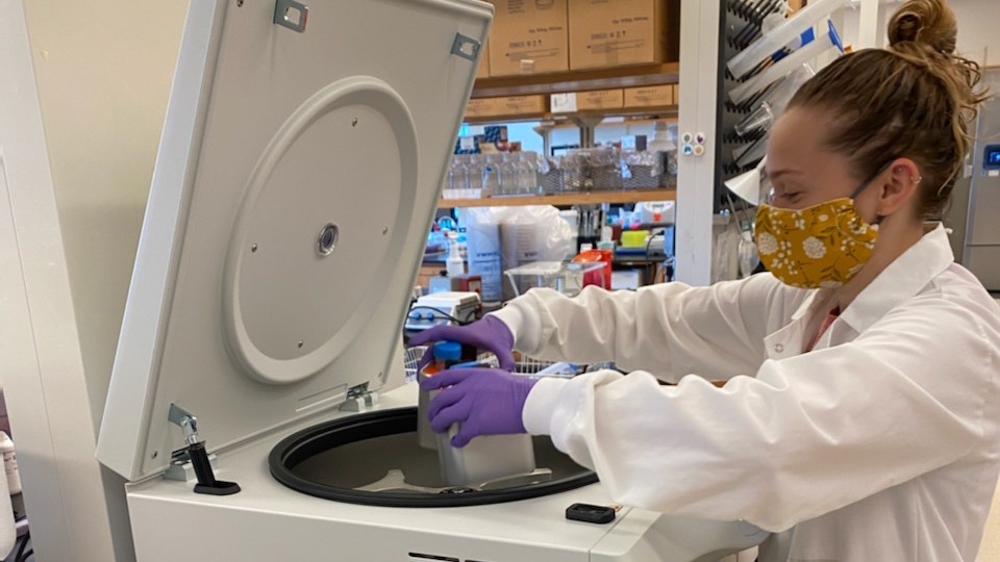Research Studies and Clinical Trials
Genetic research is accelerating improvements every day in the care of patients with inherited disorders through applications like enzyme replacement therapy for lysosomal storage diseases and nutrition management for metabolic diseases based on a patient's genotype.
If you or someone you know is interested in participating in a clinical trial in one of our areas of study, fill out our clinical research participant consent form.
All of Us Research Program
The All of Us Research Program aims to build a participant community that reflects the rich diversity of the U.S. and to integrate a broad set of data types. By doing so, researchers will gain a greater understanding of the individual differences that affect health.
Computational and Quantitative Genetics
The Center of Computational and Quantitative Genetics (CCQG) is a highly interdisciplinary program that seeks to catalyze research and training across Emory University at the interface between statistical/computational sciences and human genetics.
The vision of the CCQG is to create an intellectual home for quantitative and computational scientists to collaborate on ongoing topics in genetics-oriented precision medicine efforts.
CTCF-Related Diseases Center
Our goal is to study and learn more about how CTCF (CCCTC-binding factor) variants cause the features of CTCF related disorders. Take a look at our website for some more information on CTCF, about our study and to connect with our families
Down Syndrome Center
Emory National Fragile X Research Center
The National Fragile X Center at Emory is focused on improving the lives of people with Fragile X-Associated Disorders through research, clinical care, and education. At Emory, we have been involved in this goal since the alteration (called mutation) of the FMR1 gene was first identified by Dr. Stephen Warren in the early 1990s as the leading cause of fragile X syndrome. Most recently, the National Institutes of Health has provided additional support for this Center to support its work. This makes Emory one of the three National Fragile X Centers in the U.S. These Centers are committed to working together to make rapid progress towards prevention and treatment of fragile X syndrome (FXS), fragile X-associated tremor/ataxia syndrome (FXTAS), and fragile X-associated primary ovarian insufficiency (FXPOI).
Galactosemia
Classic galactosemia is a rare genetic disorder that results from a deficiency of the enzyme galactose-1-P uridylyltransferase. Classic galactosemia is identified by newborn screening in about 80 babies born each year in the US. Thanks to early detection and rapid and life-long dietary restriction of galactose, which is the current standard of care, most babies with classic galactosemia are spared the potentially lethal acute consequences of the disease, but unfortunately, most grow to experience a constellation of developmental and other long-term complications. There is currently no intervention available that prevents or reverses these problems. Our goal is to change that.
Genetics and Autism
The purpose of the Genetics and Autism research project is to learn more about possible genetic causes of autism in families that have only one child affected with a known Autism Spectrum Disorder (ASD). Families have an opportunity to contribute to our growing knowledge of ASDs by participating, which involves a diagnostic assessment of the child with ASD, parent interviews, completion of questionnaires about family members, and giving a blood sample. A telephone screening will be done to determine eligibility.
Genetics and Epilepsy
Epilepsy is one of the most common neurological conditions, affecting 1-2% of the population. Epilepsy is a set of brain disorders in which a person experiences a periodic disruption or change in the normal activity of neurons (nerve cells in the brain). These disruptions are known as seizures and can result in loss of consciousness, convulsions, and altered behaviors or sensations. Seizures can have a profound negative impact on the health and quality of life of the person experiencing them.
Genetic Clinical Trials
Genetic Clinical Trials Center (GCTC) is dedicated to the study and development of novel therapies for our patients with rare diseases. We work closely with industry sponsors that have developed innovative treatments to conduct a variety of clinical trials, from phase II through IV. The GCTC is an important national site for over 20 clinical trials, with many more in the pipeline.
Genetics of Orofacial Cleft Project
The Genetics of Orofacial Cleft Project (GCP) is dedicated to the identification of genes and environmental factors involved in orofacial clefts (e.g. cleft lip and palate). These birth defects are among the most common structural birth and impact 1 in 700 individuals worldwide.
Specific disorders addressed in this project are non-syndromic orofacial clefts (i.e., cleft lip and/or palate that occurs in isolation), syndromic forms of orofacial clefts, and other related disorders. A combination of statistical techniques coupled with molecular biology and genetic tools will allow us to identify genetic variants that may contribute to cleft formation.
J-Screen
JScreen is a national community-based public health initiative dedicated to preventing Jewish and other genetic diseases. Headquartered in Emory University School of Medicine’s Department of Human Genetics, JScreen provides a ready access point to cutting-edge genetic testing technology, patient education, and genetic counseling services.
Lysosomal and Peroxisomal Storage Disease Center
The mission of the Emory Lysosomal and Peroxisomal Storage Disease Center (Emory LSDC) in Atlanta, Georgia is to provide comprehensive diagnostic, evaluation, management, treatment, and cutting edge research services for patients and families living with LSDs and related genetic diseases in order to maximize health outcomes and quality of life.



